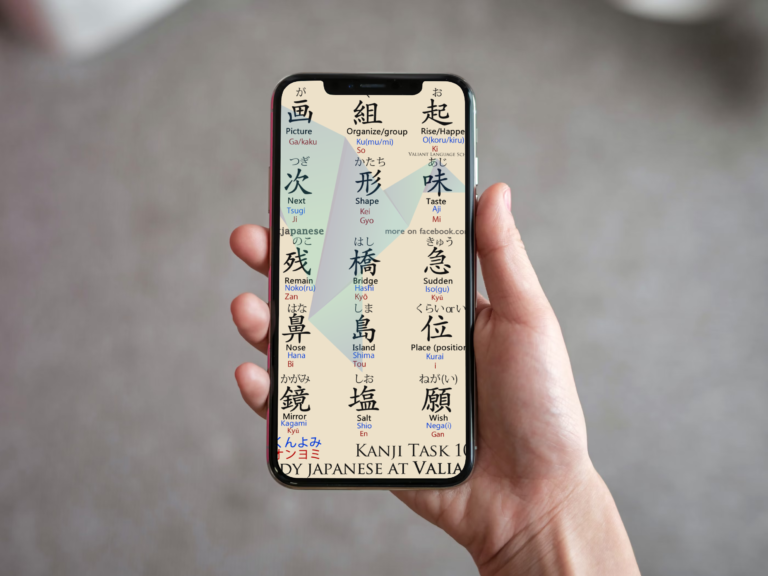The process of getting married to a Japanese national and obtaining a spouse visa can involve several steps. Keep in mind that the procedures may vary, and it’s important to check with the local authorities and embassy for the most up-to-date information. Here’s a general checklist to guide you through the process: Before Marriage: Check…

The Role of Technology in Education at a Japanese School in Roppongi.
Nestled in Tokyo’s vibrant Roppongi district, an innovative Japanese school in Tokyo is redefining educational standards through the integration of technology. This place of learning isn’t just a school; it is the beacon of advanced education technology. Here, we explore how the integration of electronic resources is enhancing teaching and learning at this school. 1. Digital Classrooms…

Boost Your Career with Business Japanese Lessons.
Ready to advance your career? If business prospects are your aim, take some lessons in Japanese. Multilingual proficiency is a treasure that comes in handy now more than ever in today’s globalized world. In our thriving and important Japanese circles, learning business Japanese lessons can create a future. Why Learn Business Japanese? The mastery of…

Tips for Practicing Japanese Conversation Skills as a Beginner.
Learning a new language, especially Japanese, is an exciting journey. Particularly, honing your Japanese conversation skills as a beginner can be both challenging and rewarding. One effective way to start is by enrolling in beginner Japanese lessons. Why Practice Japanese Conversation Skills? Benefits of Conversational Fluency Engaging in conversation is the heart of language learning. It lets…

Personal Pronouns:
These are just a few examples of common personal pronouns in Japanese. The choice of pronoun often depends on factors like formality, gender, and the relationship between the speakers. As you practice, you’ll become more comfortable using the appropriate pronouns in different situations. Watashi (わたし) – I/Me: Usage: Used by both men and women in…

Verb Conjugations in Japanese.
These are some basic verb conjugations in Japanese. Practice with different verbs to get comfortable with the patterns, and remember that consistent practice is key to mastering Japanese conjugations. Present Affirmative (Dictionary Form): Example Verb: たべる (taberu) – to eat I eat: わたし は たべる (watashi wa taberu) You eat: あなた は たべる (anata wa…

Mastering Business Japanese; Essential Lessons for Professionals.
As global markets continue to intertwine, proficiency in Business Japanese has become an invaluable asset for professionals across industries. Whether you’re aiming to negotiate lucrative deals, foster strong partnerships, or simply build rapport with Japanese counterparts, honing your language skills can significantly elevate your professional endeavors. Join us on a journey through key language structures,…

How to Learn Japanese for Beginners 5 Simple Steps.
Interested in learning Japanese and immersing yourself in its culture and language? If you learn Japanese, you’ll be able to connect with native Japanese speakers and get a taste of Japanese literature and media. You’ll get five tips to help you get started on beginner Japanese lesson. Building Vocabulary You can’t learn a language without…

5 Reasons You’ll Probably Speak Japanese Worse After Our Online Lessons.
Welcome to the world of language learning, where every step forward is two steps back – at least, that’s what you might start to believe after enrolling in our online Japanese lessons. It’s a unique journey we offer, one that promises not the usual march towards fluency, but a whimsical dance that might leave you…

Exploring Education Inside a Japanese School in Tokyo.
As we navigate through the corridors adorned with colorful displays of student artwork and meticulously crafted handwriting, we’ll uncover the intricate balance between modernity and tradition that defines these educational institutions. From meticulous daily rituals to rigorous academic programs, every aspect of life within a Japanese school in Tokyo offers insight into a society deeply…

Private Japanese Lessons: Your Gateway to Fluency.
Opening a new world is an adventure when you learn a new language. It’s an opportunity to explore culture and develop yourself. Private Japanese lessons are your key to fluency if you’re looking to embark on this journey. You will learn at your own pace in these lessons, as they are tailored to your needs, so…

Online Japanese Lessons: Your Gateway to Language Fluency.
Are you tired of feeling like a spectator in the world of Japanese language and culture? Do you long to dive into the beauty and intricacy of this fascinating language? Look no further! With Online Japanese Lessons, you can unlock the door to fluency and embark on a journey of linguistic liberation. Breaking Barriers with…

Why Choosing a Japanese School in Tokyo Can Boost Your Language Skills?
Have you ever felt limited due to language barriers? Do you dream of exploring the vibrant streets and rich culture of Tokyo; feel unable to do so due to a lack of Japanese language knowledge? Choosing a Japanese school in Tokyo is a great way to enhance your language skills and unlock a world of possibilities. Immerse…

Conversational Japanese: How to Hold a Basic Conversation.
Studying Japanese can be a thrilling and fruitful journey. It doesn’t matter if a trip to Japan is on the agenda or you just want to brush up your language skills, being able to hold a basic conversation is essential. Given the wealth of online resources, starting with an online Japanese lesson makes sense. Getting…

Top Tips for Choosing the Right Japanese School in Tokyo.
Are you prepared to begin your quest for independence by studying the Japanese language in the dynamic metropolis of Tokyo? Selecting an appropriate Japanese educational school is crucial for ensuring academic achievement and a comprehensive cultural immersion. With so many alternatives open to them, people could find it challenging to decide on the best course…
